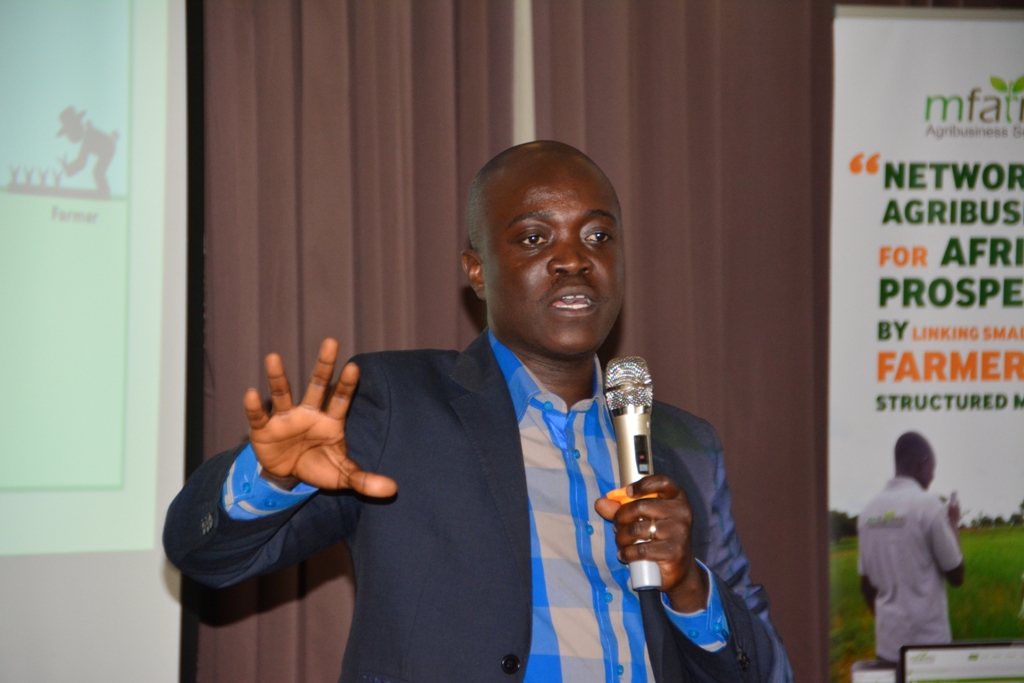By Clifford Akumu
Kenyan farmers continue to suffer due to lack of market information and infiltration of middlemen who buy produce at low prices even when the prevailing market prices are higher.
This, coupled with a drought that is currently ravaging most parts of the country has resulted to low productivity and decline in household income. Kenya’s agribusiness growth in particular still lags behind-albeit due to weak information support to farmers.
However, a Ghanaian-based online produce-trading platform that seeks to connect farmers and buyers is set to change this picture with its entrant in the Kenyan market.
mFarms, billed as an innovative mobile and web-based platform that will also link farmers and other players within the agricultural value chain by easing communication of market data prices will improve farmers’ income.
Bentil Kwame decried the lack of planning among farmers as the major cause of low income from their produce.
“We are currently providing access to best produce prices, giving best agronomic practices to over 300,00 farmers across Africa. We intend to scale with our entrant in the Kenyan market” said Kwame, the chief executive officer, Image AD during the launch in Nairobi.

The service, explains Kwame, also provides weather information on farm lands to ascertain whether rainfall is adequate. The service is provided in collaboration with the US-based National Aeronautics and Space Administration(NASA).
Accessing weather information from NASA, he explains, is easy for farmers on our platform.
“For a farmer to access this information using our platform one needs to pick the GPS location of the land. Our server will send the information to NASA which will bring historical information about that land and we can be able to determine what is the rainfall pattern of the land” Kwame explained.
With historical data on weather patterns from particular regions, predicting incidences of drought and cushioning farmers against climate aftershocks will be easy.
“We want to provide farmers with weather-related information that they would understand to mitigate drought and enhance their productivity,” he said.
Kwame explained that smallholder farmers do not access better markets because they lack timely information, a situation that their platform will change in the country by boosting market linkages.
“Farmers need the right information to make decision,” said the software developer.
Farmers with smartphones can download the app free. After it is installed, the farmer can access price information of the previous five days for 42 crops in the five markets.
The platform will also provide a monthly analysis of crop prices in different markets to show the price trends, enabling farmers to make informed decisions on what to plant when, how to price their produce and available markets.
He added that the platform will also link farmers with input and output market services.
Kenya has remained a tech start-up hot spot with new entrants. According to a report by Disrupt Africa, the country boasts of being the second country in Africa to attract investment funding for tech start-ups in 2016.
The report indicates that 26 Kenyan tech start-ups raised funding of about $10 million over passing Nigeria putting the country 2nd behind South Africa a 50 percent shot from the previous year. This was up almost 50 percent on previous year.













